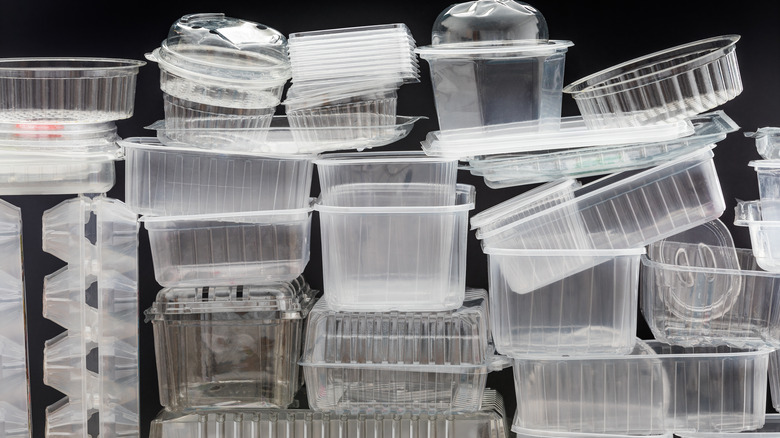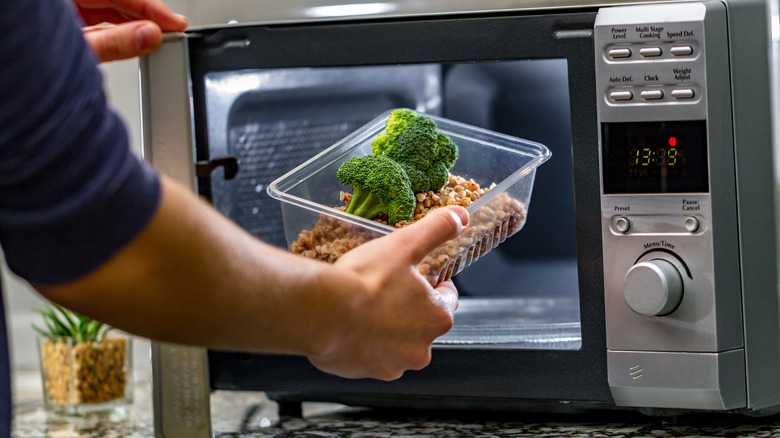The Surprising Way Plastic Can Affect Your Hormone Levels
If after hearing warnings about the health dangers of BPA in plastics, you quickly rushed out and stocked up on BPA-free water bottles, take a deep breath and read on. Research indicates that chemicals commonly found in plastics, including those often used to replace BPA, seem to be just as bad.
BPA made headlines years ago as study after study came out showing that the chemical, which is widely used in food- and drink-related plastics (like water bottles and food storage containers), as well as the lining of canned foods, is actually a toxic substance. It acts as a hormone disruptor, mimicking or blocking the action of the female hormone estrogen. In many animal studies, BPA has been shown to alter normal brain and reproductive development (via NRDC). Research has also produced concerning associations between BPA and birth defects, heart disease, and breast cancer (via Nutrition Facts).
Switching to BPA-free bottles and containers is a start, but unfortunately, it's not enough to avoid exposure to potentially hormone-disrupting chemicals. As it turns out, BPA isn't the only culprit. Other chemicals found in many plastics, including those specifically chosen to replace BPA, are also cause for concern.
Keeping plastic food containers out of the microwave can help
One study, which tested samples from 450 common food-related plastic products, like sippy cups and deli packaging, found that 70 percent of them released hormone-disrupting chemicals after simply being soaked in either saltwater or alcohol. After being exposed to real-world conditions like microwaving, dishwashing, and sunlight, that number jumped up to a whopping 95 percent. This included many plastics that were BPA-free (via NPR). Surprisingly, in some cases the BPA-free items released even more chemicals than those with BPA.
Sonya Lunder, a senior analyst at the Environmental Working Group, noted "We've long cautioned consumers to avoid extreme heat and cooling for plastics, to discard scratched and worn plastics and we feel like this [study] validates one of our many concerns."
Hormone-disrupting chemicals are so ubiquitous that there's no way we can avoid them completely. According to the Plastic Health Coalition, they've even been found at the bottom of the ocean, and at the top of the Himalayas.
But there are some easy steps we can take to at least minimize our exposure. When possible, buying food that's stored in glass, or BPA-free cartons, instead of cans, is a start. Don't microwave food in plastic containers. Avoiding plastic water bottles, and choosing email receipts instead of BPA-laden print-out receipts, can also help (via NRDC).


